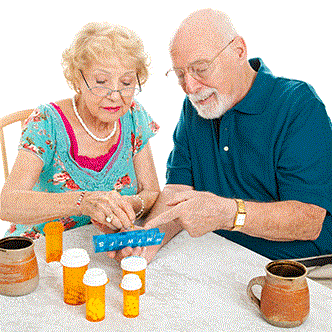
Thanks to decades of research, we have a number of medications that help patients with heart disease and heart conditions live longer, healthier lives. From low-dose aspirin to cholesterol-lowering statins, heart medications help millions of Americans lower their risk of health problems like heart attack and stroke. The problem, however, is that research on the safety and efficacy of these drugs includes mostly male patients. But it’s clear that major differences exist in the diagnosis and treatment of heart disease among men and women.
A paper published recently in the European Heart Journal addresses serious gaps in knowledge on the effects of heart medications in men and women.
As authors explain, risk of adverse events like bleeding or stroke for several heart drugs are much higher in women than in men. In fact, women may have 50–70% greater risk of such events for certain drugs. Yet women represent only one-third of the study population for clinical trials.
Since women are largely underrepresented in trials, important gender differences around the safety and efficacy of heart drugs may go unnoticed. Also, ideal drug dosages are likely different between the sexes, highlighting an important opportunity to improve treatment and outcomes.
Current guidelines around heart medication are based on male-dominated studies. Therefore, authors urge research involving women to gain a deeper understanding of gender differences in the treatment of heart disease.
The Working Group on Pharmacology and Drug Therapy, who authored this recent paper, was established by the European Society of Cardiology to reduce the burden of heart disease in Europe. As experts from the group explain, all cardiologists prescribe heart drugs to treat various conditions and reduce risk of complications. The more we know about the differences in the treatment and diagnosis of heart disease in men and women, the better outcomes will be for all.